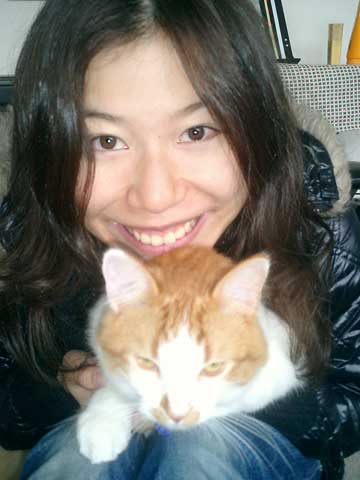The Japanese Veterinary education system needs improvement. Specifically, the connection between research and clinical Veterinary Medicine is tremendously weak compare to that of the United States. In Japan, research and clinical Veterinary Medicine are completely separated for political reasons; senior Veterinary students cannot receive practical training because of lack of both teaching skills and motivations of professors. Also, plagiarism is common because of lack of training in academic ethics. Japanese Veterinarians are struggling to absorb the unique characteristic of Veterinary Medicine – dynamic interaction with people in both research and clinical practice – and it has taken a toll on our ability to educate. Backward, bungling bureaucracy makes it near impossible to improve the whole Japanese Veterinary education system at one time, but I want to make improvements at least in my specialization.
The Combined Microbiology Residency/PhD program at Colorado State University will shape me into an expert who can start working on this goal. The program will train me in a diverse environment with ACVM-certified microbiologists, infectious disease specialists, agencies, clients, and students. Your dynamic and challenging program will give me a high ethical standard in academia, more skills for intermingling with various specialists, and opportunities for teaching in academic and practical Veterinary Microbiology. Your program will lead to a faculty position in the U.S. or Japan as it will provide me with credibility and thus influence. Furthermore, my faculty position will encourage women to pursue career in academia especially in Japan where it is still almost impossible to find female faculty members.
Dr. Edward Hoover’s work attracts me the most among the faculty. My study on Simian Immunodeficiency Virus during my master and on Feline Calicivirus during Veterinary school has given me confidence in my research skills to contribute to his work. The Immunological approach in Microbiology moves me because we have came to the point that we cannot understand virus pathogenesis without the understanding of Immunology. Dr. Hana Van Campen’s work also attracts me because Foot and Mouth Disease (FMD) and Bovine Viral Diarria Virus are also economically important diseases in Japan. My work with Dr. Katsuyuki Kadoi, who has specialized in FMD virus, also has given me the laboratory skills to contribute to her work.
My study under Dr. Kadoi at Nihon University in Japan ignited my interest in viral pathogenesis, vaccine development, and Immunology. Three-plus years of working in his Veterinary Microbiology Laboratory gave me rigorous trainings in cell culture, virus isolation, and virus inoculation as well as Fluorescence-activated cell sorting (FACS) analysis. His persistent, diligent work and vivid explanation about the potential of the work inspired me to pursue the truth in Veterinary Microbiology. My internship at Angel Animal Hospital in Japan gave me the opportunity to apply the systematic medical approach that I learned during my externship at Texas A&M University and to improve my client communication skills. I enjoyed watching the way my questions and suggestions made my clients and colleagues think, learn, and finally make a decision of the medical plans for their companion animals or patients. Based on these experiences, I see teaching in the classroom or clinic as an important part of my future.
The master program at University of California, Davis, has focused me more on research. The program provided me with rigorous trainings in Biostatistics, Epidemiology, research designs, and animal policies. The program has taught me that it is critical to know the characteristics of study designs including clinical trial and experimental designs and how to interpret the results objectively to give plausible reports. The investigation of outbreaks and running surveillance require the communication with various specialists to prevent the next epidemic. Now, I am eager to apply this knowledge to carry out independent research and analysis, hence my decision to join the PhD program at your department.
All of these experiences have shaped me into a highly motivated, focused, and diligent person, which makes me an excellent candidate for an assistantship or fellowship. I also have access to two recently established cell lines from lungs and kidneys of chicken embryos and I am ready to start a project and apply for grants in avian influenza and other economically important viruses in poultry.
Colorado State University is a rare school that provides the residency program in Microbiology, and your department has so many ACVM-certified faculty that I am confident that I can get a perfect guidance for becoming one; therefore, although UC Davis, which is the school that I am in, is also known for feline viral infectious disease study, but it does not have these above assets and does not interest me as much. Furthermore, only your school welcomes international veterinarians to the Combined residency program in Microbiology. I have well-developed teaching, laboratory, and research skills and I want to exploit these skills to the greatest extent. I believe that if I am given the opportunity to study at your department, it will provide a competitive environment to bring out the best in me and help me to reach my goal of improving the Japanese Veterinary education system.

